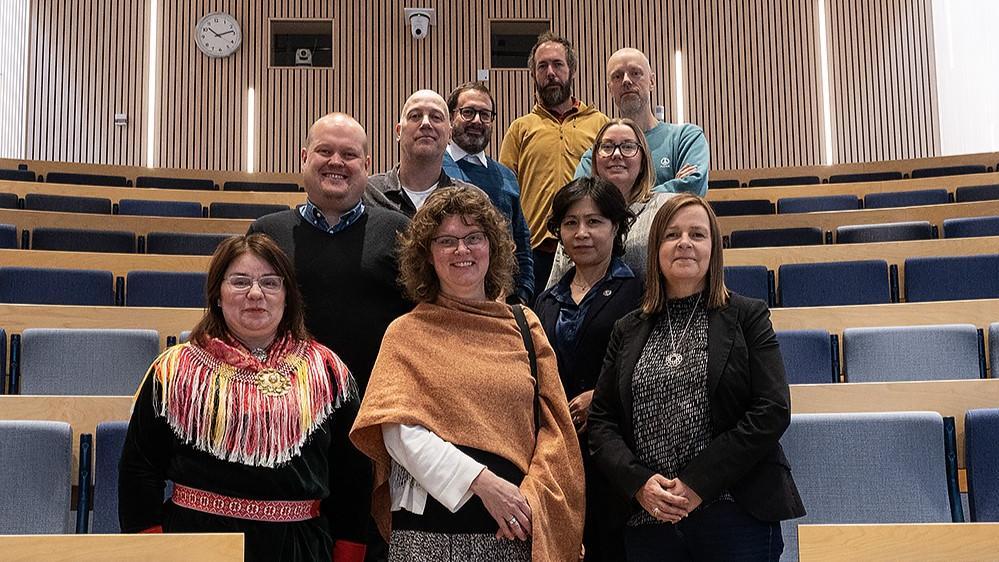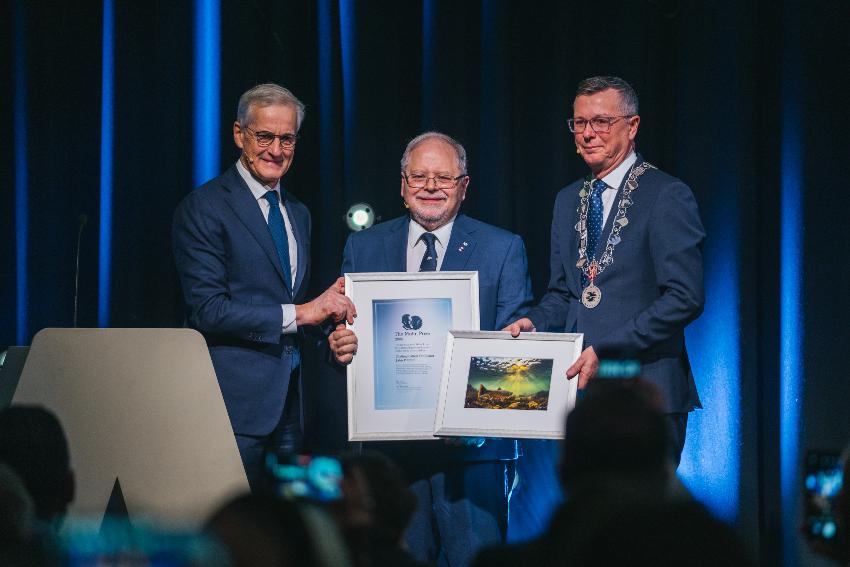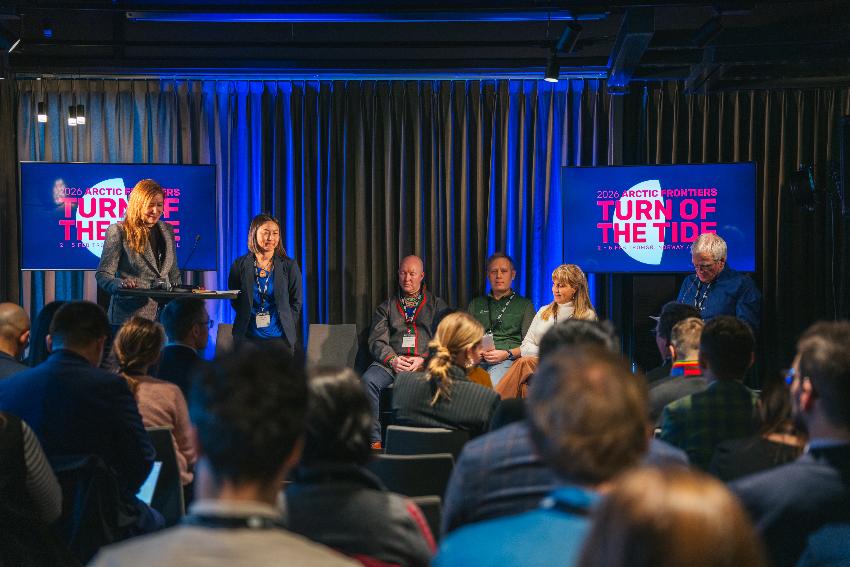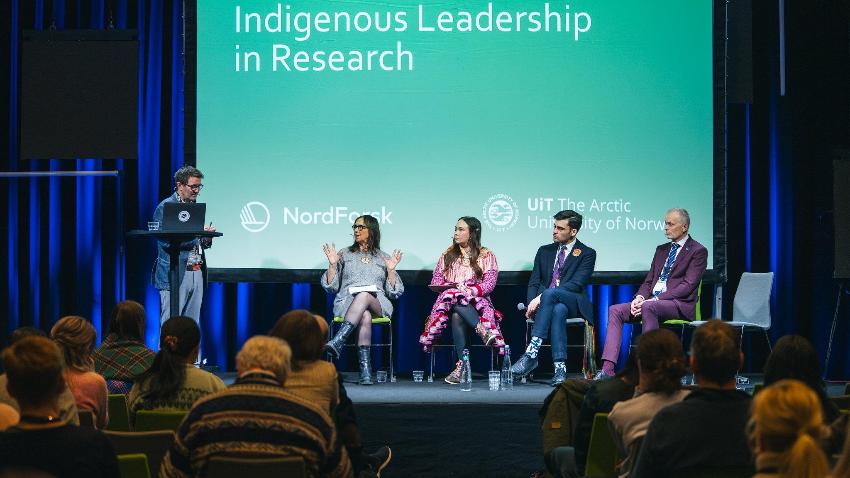Four UiT researchers appointed to Arctic Five Chairs
Arctic Five (A5) has appointed 16 new Chairs, who can initiate new research and education projects within the A5 alliance. Four of them are researchers from UiT. Their work focuses on memory culture and the consequences of geopolitical tensions and climate changes in the Arctic.

Arctic Five is an alliance between five Arctic universities in Norway, Sweden, and Finland. These universities engage in close collaboration to promote education and research in the Arctic.
New initiatives that create interdisciplinary collaboration across national borders are launched by what are called Arctic Five Chairs, who are appointed every other year. They also have the task of strengthening existing research and educational networks in the three countries.
In 2024, 16 new Chairs were appointed, four of whom are researchers at UiT:
- Monika Gabriella Bartoszewicz, Associate Professor at the Department of Technology and Safety
- Tiina Maria Ikälheimo from UiT's research group for occupational health.
- Ana Luisa Sanchez Laws, Professor at the Centre for Peace Studies
- Wei Deng Solvang, Professor at the Department of Industrial Engineering
Johanne Raade, director at UiT’s University Library and co-director at Arctic Five believes the four will contribute to lifting new projects in the Arctic Five alliance.
“The four new researchers appointed to Arctic Chairs are all great representatives for UiT. This is the second announcement of Chairs and it is our hope that through this way of working we can build larger networks between our institutions. We hope our networks and cross-border collaboration, at the researcher to researcher level, can help us address complex issues together and in this way perhaps make it possible to develop larger projects, which in turn can achieve greater success in applications for funding”, says Raade.
Preparedness and resilience
On October 2-3, a symposium was held at Luleå University of Technology, where the four presented the research fields they will prioritize until 2026. UiT researchers gave lectures on topics such as occupational health, collective memories and cultural heritage, preparedness, and security policy in the Arctic.
![2024-okt-1[32].jpg Portrait of a woman](/Content/862763/transformation=scale10000x800/2024-okt-1[32].jpg)
Wei Deng Solvang presented her research on the mobilization of resources in civil society during pandemics, economic crises, or when political instability arises. Among other things, she uses simulations to map how it is possible to make society and infrastructure more resilient.
Solvang believes there is significant potential for research collaboration between A5 universities in this field.
“I am really excited about the opportunities that lie in expanding the collaboration between UiT and other universities in the A5 alliance. With UiT's strategic location in the Arctic and our specialized knowledge of the region, we are in a unique position to lead in research on preparedness and rapid mobilization in crisis situations”, says Solvang.
For her, it is important that collaboration between universities in the A5 alliance allows UiT to benefit from a wider range of perspectives, resources, and expertise.
“This can include everything from joint research projects and the exchange of researchers and students, to collaboration on publications and conferences. Such expanded collaboration will not only improve the research capacity at our institutions but also lead to more effective and sustainable solutions for the Arctic and other areas facing similar challenges”, Solvang points out.
Security policy and occupational health
Another newly appointed Chair, Monika Gabriella Bartoszewicz, also researches uncertainty factors, but then in the context of how changes in security policy affect infrastructure in the Arctic.
She analyzes how long-term planning and building competence about strengthening civil society can be an important measure to improve preparedness.
Facts about Arctic Five
- Alliance between five Arctic universities in Norway, Sweden, and Finland.
- Together, the universities have 10,000 researchers and 90,000 students.
- Collaborates on education, research, and innovation that can contribute to developing the Arctic as a sustainable region.
- Actors within business and industry in the three countries also engage in close collaboration with A5 universities.
- A5 also constitutes a separate regional center for the international UArctic network.
How unpredictable climate changes can also affect occupational health is an important starting point for the research of Tiina Maria Ikälheimo. She aims to uncover how climate changes affect people working outdoors in the Arctic. This can involve work performed in mines, the oil and gas sector, in fishing and aquaculture, industry, tourism, agriculture, environmentally friendly energy production, logistics, maintenance, or more traditional professions.
Memoryscapes in the Arctic
A5 Chair Ana Luisa Sanchez Laws presented in Luleå her research on how collective memory formation can affect peace processes. This entails that collective memories can sustain cycles of conflict by reinforcing narratives of victimhood, or they can become spaces for reconciliation.
Competing memory narratives can be shaped by political agendas or power relations. According to Sanchez Laws, this can reinforce social divisions and hinder efforts towards reconciliation and peace. But she also believes that such dynamics also can lead to new moments of negotiation and healing.
The A5 alliance should be a good opportunity to transcend boundaries and explore collective memories in the region more holistically.
To analyze the processes behind collective memory creation, Sanchez Laws is using the concept of memoryscape. This involves her using digital documentation and immersive media to recreate how different narratives meet each other and the direction they take afterwards.
“Understanding whether and how a site contains the seeds of competing narratives or whether it serves as a point of fusion where multiple perspectives coalesce, is the goal of the project”, says Sanchez Laws.
She believes that collaboration with researchers in Finland and Sweden is necessary to understand how different waves of collective memory creation develop in various places in the northern regions. In such a context, Sanchez Laws thinks that borders established by nation-states could be superfluous.
“This becomes especially clear when thinking about memoryscapes in Sápmi - so I think it is important to consider each site as a node in a broader network of memorymaking. The A5 alliance should be a good opportunity to transcend boundaries and explore collective memories in the region more holistically. There is already an enormous wealth of research from and about this part of the world from cultural heritage, history, peace studies, media, security studies and much more. And my research seeks to contribute to this body of work”, Sanchez Laws concludes.
Kortnytt fra International Cooperation Section
-
Arkeologi - master
Varighet: 2 År -
Peace and Conflict Transformation - master
Varighet: 2 År -
Geosciences - master
Varighet: 2 År -
Biology - master
Varighet: 2 År -
Technology and Safety - master
Varighet: 2 År -
Law of the Sea - master
Varighet: 3 Semestre -
Biologi - bachelor
Varighet: 3 År -
Nordisk - årsstudium
Varighet: 1 År -
Luftfartsfag - bachelor
Varighet: 3 År -
Pedagogikk - bachelor
Varighet: 3 År -
Arkeologi - bachelor
Varighet: 3 År -
Likestilling og kjønn - årsstudium
Varighet: 1 År -
Historie - bachelor
Varighet: 3 År -
Geovitenskap- bachelor
Varighet: 3 År -
Samfunnssikkerhet - bachelor
Varighet: 3 År -
Samfunnssikkerhet - master
Varighet: 2 År -
Kunst - bachelor
Varighet: 3 År -
Kunsthistorie - master
Varighet: 2 År -
Religionsvitenskap - årsstudium
Varighet: 1 År -
Romfysikk, sivilingeniør - master
Varighet: 5 År -
Sosialantropologi - bachelor
Varighet: 3 År -
Historie - master
Varighet: 2 År -
Anvendt fysikk og matematikk, sivilingeniør - master
Varighet: 5 År -
Barnevernsarbeid - master
Varighet: 2 År -
Forfatterstudium 2 - årsstudium
Varighet: 1 År -
Fine Art - master
Varighet: 2 År -
Barnevern - bachelor
Varighet: 3 År -
Arctic Nature Guide - one year programme
Varighet: 1 År -
Sosialt arbeid - bachelor
Varighet: 3 År -
Arktisk friluftsliv og naturguiding - bachelor
Varighet: 3 År -
Arktisk friluftsliv - årsstudium
Varighet: 1 År -
Grunnskolelærerutdanning for 1.-7. trinn - master
Varighet: 5 År -
Kunsthistorie - årsstudium
Varighet: 1 År -
Governance and Entrepreneurship in Northern and Indigenous Areas - master
Varighet: 4 År -
Vernepleie - bachelor
Varighet: 3 År -
Internasjonal beredskap - bachelor
Varighet: 3 År -
Barnevern - bachelor
Varighet: 3 År -
Vernepleie - bachelor
Varighet: 4 År -
Landskapsarkitektur - master
Varighet: 5 År -
Grunnskolelærerutdanning for 5.-10. trinn - master
Varighet: 5 År -
Kvensk og finsk - bachelor
Varighet: 3 År -
Nordisk språk og litteratur - bachelor
Varighet: 3 År -
Russisk og russlandsstudier - bachelor
Varighet: 3 År -
Ph.d.-program i naturvitenskap
Varighet: 3 År -
Russisk og russlandsstudier - master
Varighet: 2 År -
Environmental Law - master
Varighet: 2 År -
Nordisk språk og litteratur - master
Varighet: 2 År -
Kvensk og finsk - master
Varighet: 3 År -
Ph.d.-program i realfag
Varighet: 3 År -
Velferdsendring - erfaringsbasert master
Varighet: 4 År



